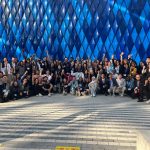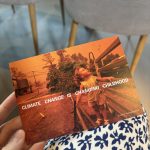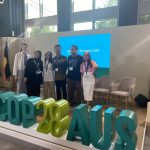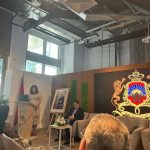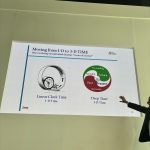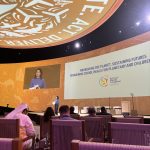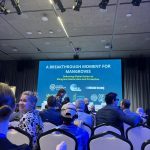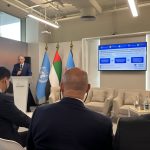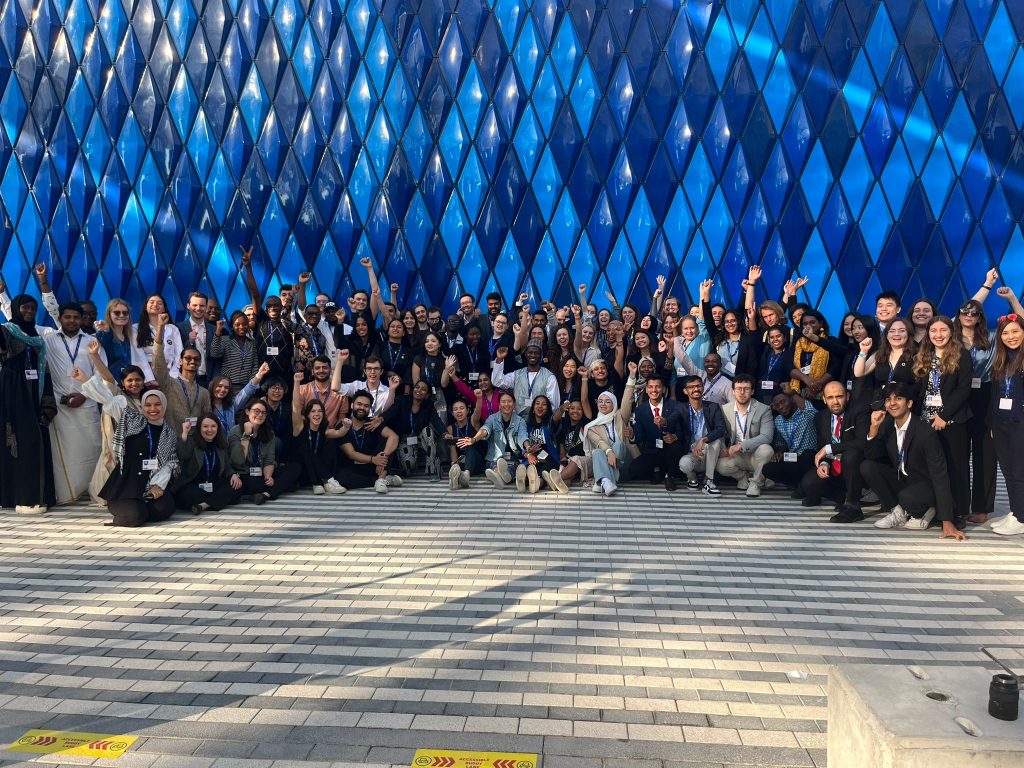
On December 8th our youth delegate, Zvezdana Božović, attended 5 events, as that date is Youth, Children, Education and Skills Day. The first was a UNICEF panel entitled “Climate survival kit for children” with young activists from Australia and Indonesia, held in the Australian pavilion. After that, she attended a panel in the Morocco pavilion where several young people spoke about their work and activism. One of the quotes that stuck was “The climate crisis is the story we failed to tell”. After that, Božović attended the “Seventh Generation Wisdom Cafe” workshop led by Professor Dr. Charles Savage, where the participants discussed in groups the idea of whether the climate crisis is actually a “crisis of consciousness”, and if so, how can we change our inner life in order to achieve the goals of sustainable development. Afterwards, she attended the WFP high-level panel on school meals (Reimagining School Meals for Planetary and Child Health). Finally, she attended the panel Carbon Literacy: The Most Scalable and Impactful Climate Solution. It was mostly discussed about the responsibility of individuals and how they can reduce their personal carbon footprint, for example, by avoiding meat in the diet or the type of coffee they drink, i.e. the fact that almost everything today that we don’t even think about in our everyday life can be measured in the amount of CO2 emissions, without us even realizing it.
The topic on December 9th was Nature, Land Use and Oceans. First, Božović attended the panel “A Breakthrough Moment for Mangroves: Delivering Global Action on Mangrove Restoration and Protection.” H.E. Razan Khalifa Al Mubarak, UN Climate Change High-Level Champion for COP28 and current President of IUCN spoke about the key role of nature conservation in the context of the goals set by the Paris Agreement. After that, our youth candidate attended the event “Strategic Pathways For Land Restoration and Conservation: Multi-stakeholder Deliverables and Actions Towards 2030 Breakthroughs. Božović found the most interesting presentation by Thomas Crowther, a professor from ETH who founded Restor, an application that maps biodiversity data in to the whole world “If we conserve the ecosystems that we still have, there’s the potential for 61% of carbon drawdown potential simply by conserving ecosystems that we still have. … But the remainder can be achieved by equitable development, empowering local communities … about empowering a socially and ecologically responsible revolution to revise and revitalize the degraded ecosystems that we have into healthy ones. Now this cannot be achieved through these mass monocultures because the power of nature as everybody in this room knows is in its complexity. … That means that if we were to replace those ecosystems with monocultures, we would lose about 50 to 70 percent of that carbon storage potential. … This cannot be achieved if we don’t also cut our emissions.” An extremely interesting project: Restor | Global hub for nature restoration and conservation
Finally, she attended the event in the Azerbaijan pavilion entitled “Scientific Network and Climate Adaptation in the Caspian Sea Region”. The conclusions were as follows:
• The Caspian Sea level is dropping with alarming speed. There is a need for enhanced understanding of this phenomenon which is also induced by climate change in the Caspian Sea region.
• Enhanced Science-Policy platform enabling climate adaptation measures is required. The Tehran Convention and CASPCOM are the two existing mechanisms to enable cutting-edge research to support science-based decision-making on climate change.
• Caspian countries together with the international community should strengthen their cooperation for climate change action.
The Minister of Environment of Azerbaijan was also at the event, who officially confirmed that COP29 will be held in Baku and Azerbaijan. We were in the right place at the right time, because the news was in the media at that very moment.

